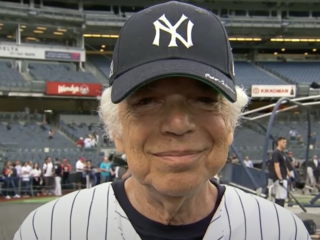A Quote by Sanjaya Baru
Crises are inherent to market economies, but managing them is the key to political success, and the media plays a vital role in getting the policy message across.
Related Quotes
I believe in market economics. But to paraphrase Churchill - who said this about democracy and political regimes - a market economy might be the worst economic regime available, apart from the alternatives. I believe that people react to incentives, that incentives matter, and that prices reflect the way things should be allocated. But I also believe that market economies sometimes have market failures, and when these occur, there's a role for prudential - not excessive - regulation of the financial system.
The 'Big Green Debate' has entered a very interesting stage. Once there was endless controversy; now there is near unanimity. Once there was universal political indifference; now the bandwagon is abrim with politicians in catch-up mode. Once the media were semi-detached: now they're really getting stuck in. And they need to be! Many people are confused and disempowered, and the role of the media in getting then informed and engaged is critical
Part of what we're trying to do is lay out what really happened. For example, I've been trying to get across that the intelligence leadership did not just keep the country in the dark. They actively misled the country on key issues. When you have someone who heads the NSA saying we don't hold data at all on US citizens, that's one of the most misleading statements I believe that's ever been made about surveillance policy. And I think that now we're starting to get that message across.
The key to longevity is to keep doing what you do better than anyone else. We work real hard at that. It's about getting your message out to the consumer. It's about getting their trust, but also getting them excited, again and again. My clothes.. the clothes we make for the runway.. aren't concepts. They go into stores. Our stores. Thankfully, we have lots of them.
People really don't like to hear success explained away as luck — especially successful people. As they age, and succeed, people feel their success was somehow inevitable. They don't want to acknowledge the role played by accident in their lives. There is a reason for this: the world does not want to acknowledge it either. If you use better data, you can find better values; there are always market inefficiencies to exploit, and so on. But it has a broader and less practical message: don't be deceived by life's outcomes. Life's outcomes, while not entirely random, have a huge amount of luck baked into them. Above all, recognize that if you have had success, you have also had luck — and with luck comes obligation.
The internet, like social media, seems to me to depend on how you use it, where you spend your time on it. I used to be quite anti-social media, but I can see now that it can be a good tool for artists, a way for us to speak to each other outside of standard economies and across languages and borders.




































